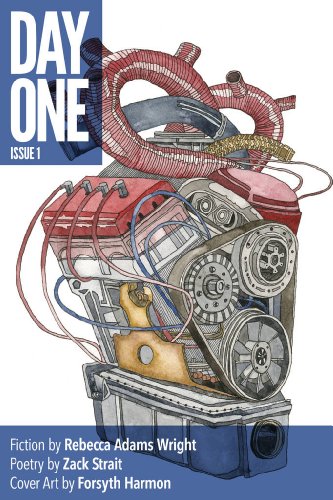I was surprised to get a notification about a short story I had submitted almost three years ago and then completely forgotten about. The literary journal that I submitted to never quite got up and running. It went before it ever arrived, and like so many other non-responses I'd gotten over the years, I'd quite forgotten about this one until a notice came that the short story had been rejected.
Someone, apparently, was cleaning up old business.
That's the thing with literary journals. They pop up, usually started by enthusiastic English majors who think they can identify the sorts of things that matter to the public, the strories that people will read and discover some truth about the world.
And then they fade away due to lack of money because people aren't paying into the system. By and large, literary journals sell copies to authors looking to submit to the journal. It's a poor business model.
One journal dies, and another one is born. Amazon is now going to enter the literary journal field.
The plan is to produce a weekly journal of short stories that will sell at $19.99 for an annual subscription. Cheap, yes, but will it sell at any price? Look at all the others who have gone before, only to expire when the cash flow dries up. Or will Amazon keep the money tap open, to prop up a new venture?
Amazon's publishing arm seems to be on shaky ground, what with Larry Kirshbaum making for the exits. The fact that traditional brick and mortar stores won't carry Amazon-published books played into the poor results. How does a literary journal figure into some plans for future success?
Authors who have published short stories in prestigioius literary journals will have their stories submitted for prestigious prizes. Look at an author biography on a book and you'll often see mentions of the Pushcart Prize or something similar. It is the platform for fiction authors, the street cred that wins them the publishing contracts.
What if a Day One writer wins a prize and then signs with Amazon Publishing? Could Amazon use that prestige as leverage to gain access to Barnes and Noble's stores? Would public demand for this brilliant author push independent book sellers to carry something published by their archenemy Amazon?
Or will Day One fold like all the rest, a victim of the reading public's disinterest in short stories.
By the way, if you were about to add this Kindle product to your list of places to submit that short story you believe strongly in, you can save yourself a rejection. At the moment, the journal is not accepting submissions from the sort of authors they claim they want to discover. For now, they are sticking with the tried and the true, the MFA students and the graduates of acclaimed writing programs.
The launch of a new product has to be controlled, after all, to see what the readers are favoring so that future issues can be molded to fit the demand. If Amazon is to find the most promising future authors, they have to find out what the public will buy. And what they will ask for when they shop at their local indie bookstore that really doesn't want to carry anything from Amazon Publishing but the customer is always right, after all.

No comments:
Post a Comment